
Thousands of passengers endured severe disruption at Doha’s Hamad International Airport and Dubai International Airport on Tuesday, as air travel in the region was thrown into chaos following the sudden closure of airspace over Qatar, Bahrain, and Kuwait. This unprecedented shutdown was triggered late Monday after Iran launched a missile attack on a U.S. military base in Doha, escalating regional tensions and forcing airlines to cancel or reroute hundreds of flights.
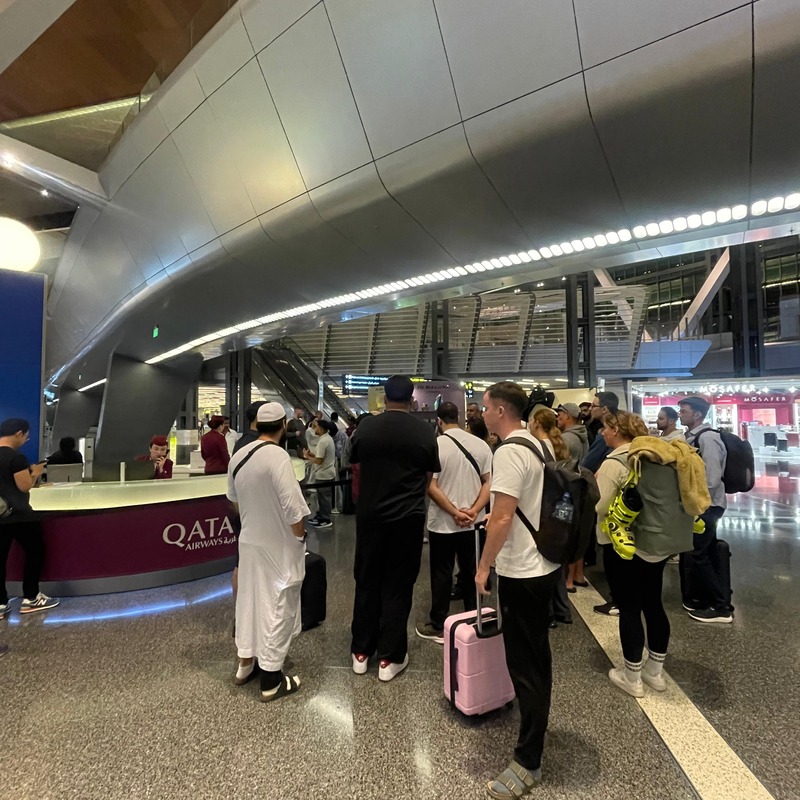
At Doha airport, the impact was especially acute. More than 25,000 travelers were stranded, with Virgin Australia among the airlines reporting significant numbers of affected passengers. Data from FlightRadar24 indicated that around 250 flights were canceled and another 238 delayed at Hamad International.
Passengers described scenes of confusion and exhaustion, with queues stretching over 200 meters and some travelers waiting in line for more than nine hours with only water provided. Arguments broke out as frustrations mounted, and images of overcrowded terminals circulated widely on social media.
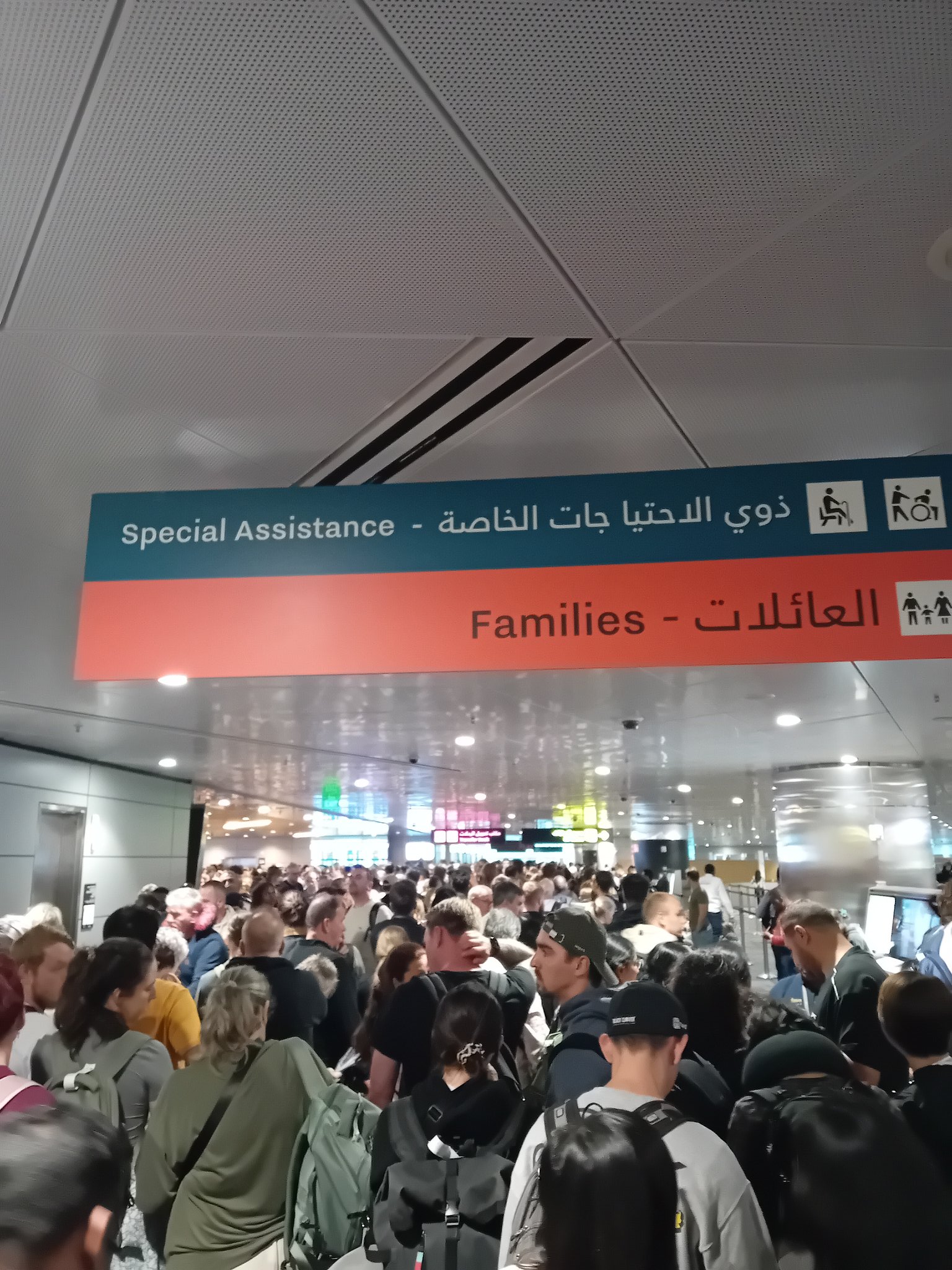
Dubai International Airport, the world’s busiest for international traffic, also faced extensive disruption. About 145 flights were canceled and over 450 delayed, according to flight tracking data. Operations were briefly suspended across Dubai, compounding the backlog of stranded passengers and leading to long lines throughout the terminal.
The airspace closures forced major airlines—including Qatar Airways, Emirates, and Etihad Airways—to suspend or reroute flights, with some carriers, such as Emirates, halting all services to Iran and Iraq through June 30.
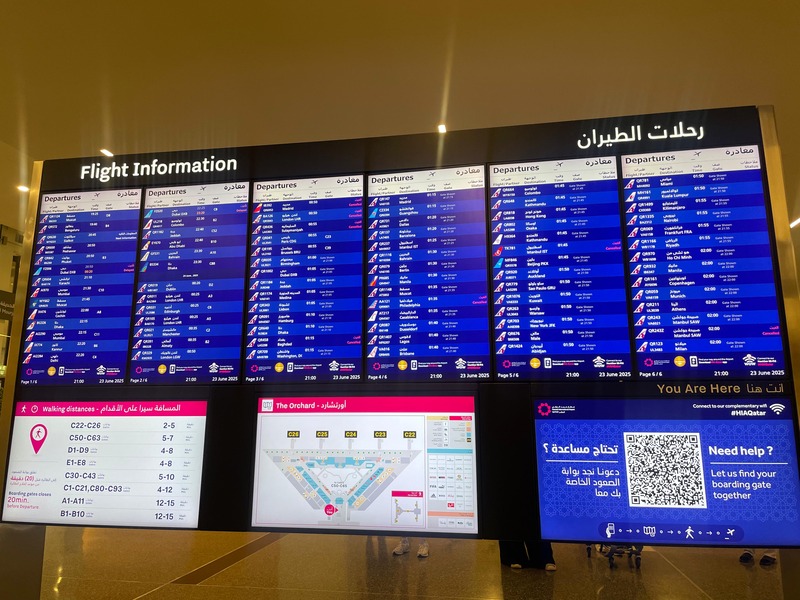
Etihad suspended flights between Abu Dhabi and Tel Aviv until July 15 and canceled several regional flights, while Gulf Air extended its suspension of flights to Jordan until June 27. Singapore Airlines and British Airways also canceled flights to and from the region, citing security concerns.
Although Qatar reopened its airspace early Tuesday, the effects of the closure continued to ripple through the region. Qatar Airways warned of “significant delays” and possible disruptions until at least June 26, as aircraft and crew remained out of position due to diversions to airports in Abu Dhabi, Muscat, Bahrain, and Dammam. The airline deployed extra staff at Hamad International and other key airports to assist affected travelers, and waived change and cancellation fees for those impacted.
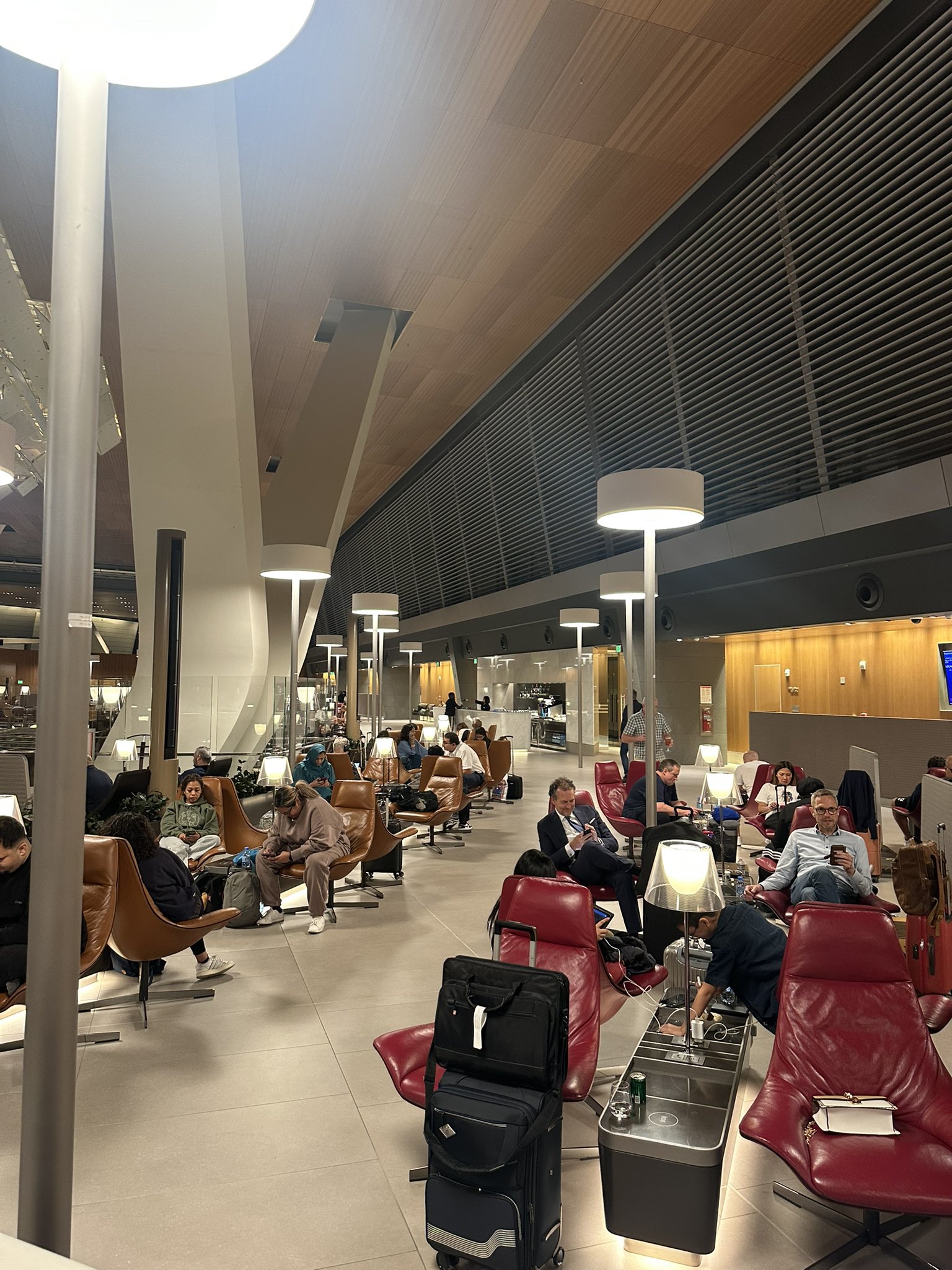
The disruption comes as Middle Eastern airports play an increasingly vital role as global transit hubs, particularly since the Russia-Ukraine conflict forced airlines to avoid those countries’ airspace. Last year, Dubai alone handled more than 92 million passengers, with a daily average exceeding 250,000. The incident underscores the vulnerability of international air travel to geopolitical tensions in the region, with ripple effects felt by travelers and airlines worldwide






.png)




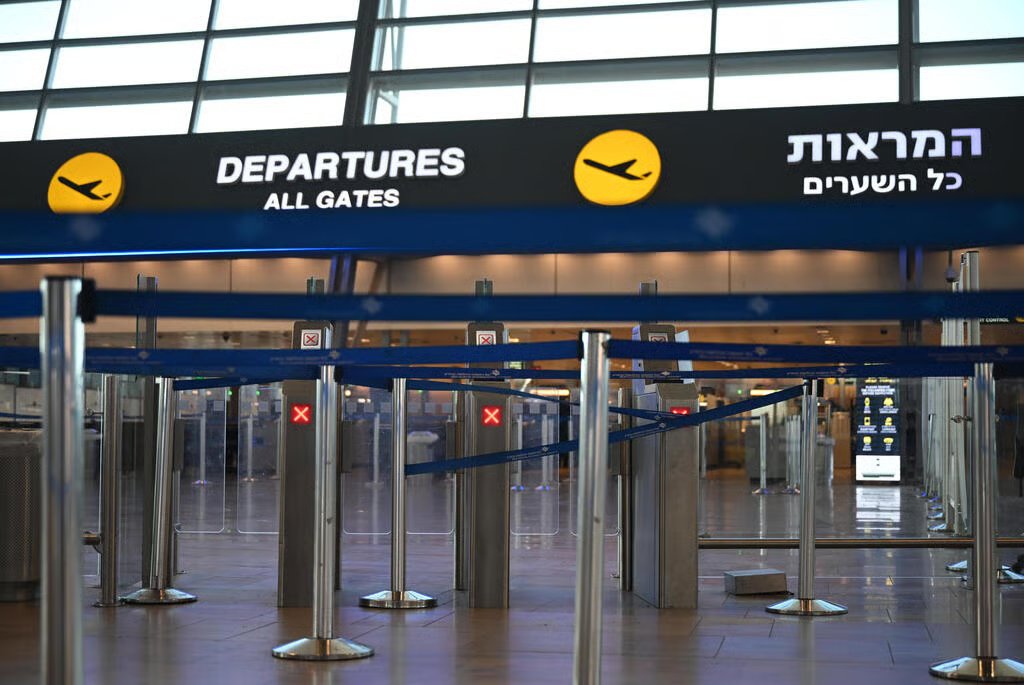
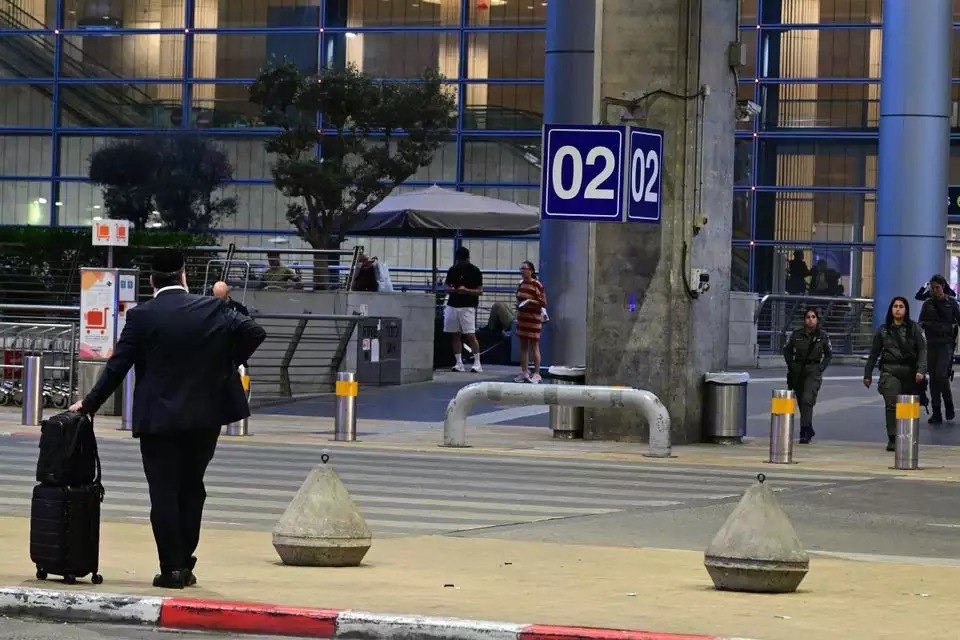
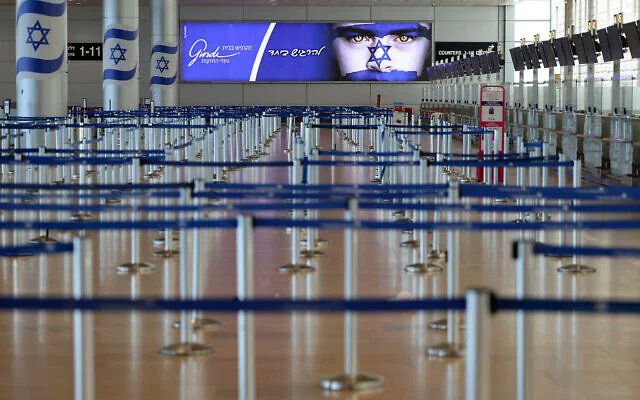






.jpg)





























.png)







